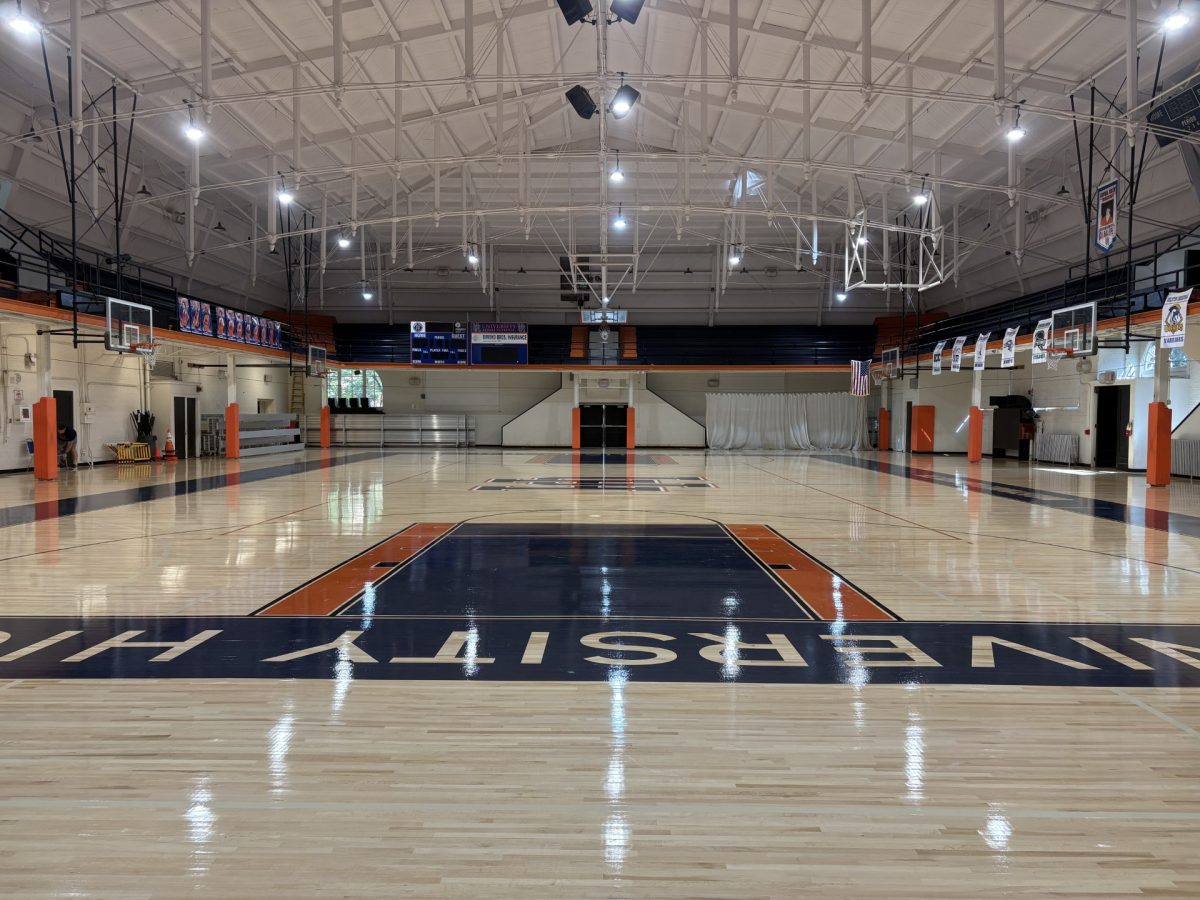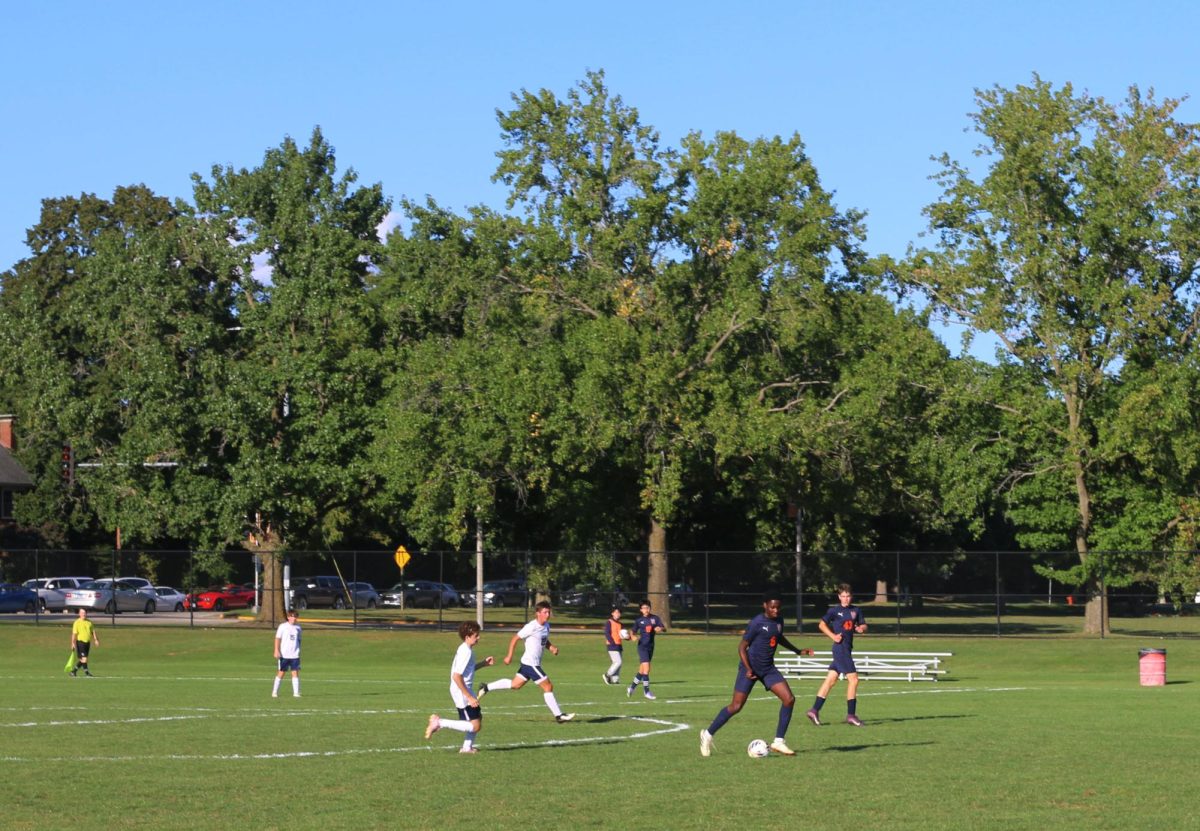“There’s a difference between researching stuff on your own, learning it the way you want to learn it, and really getting into it, and having someone just talking at you,” says sophomore Alyssa Neubauer of Uni’s mainly project-based learning curriculum.
While Uni classes have a variety of different structures — Uni’s Admissions page states that school curriculum can vary “year to year based on research, experience, student feedback, and experimentation” — many classes tend to be project-based versus lecture-based.
Students discuss the pros and cons of both traditional and project-based learning.
Sophomore Emmie Vargas says she enjoys project-based learning because it helps her develop her time-management skills.
“[Project-based learning] allows you to be ready for college, especially with presentations and projects,” Vargas says. “Personally, I do a lot better with a working environment. Having something to work on constantly, with time management, that’s a really big thing for me.”
Uni students tend to favor project-based learning versus lecture-based learning. In a poll on the Uni High Gargoyle’s Instagram, 64% of respondents said they preferred project-based classes versus the 36% that preferred the traditional method of teaching.
Junior Jacque Butts thinks project-based learning gives students too much free time.
“I think that a lot of Uni classes are project-based, and sometimes it’s fun. But a lot of the time, if you’re stuck with a project you don’t like, you’re forced to learn a lot about that subject,” says Butts. “And even if you do like a subject, you’re not really being taught anything … [in class].”
Senior Savindi Devmal thinks the structure of a class depends on its subject, citing Uni’s physics classes as an example.
“I think physics, for example, physics is all lecture. There are no projects in physics, but I think that’s the best way to teach it,” Devmal says.
She adds that history classes are best taught through a project-based structure.
“I also like how in history, in Mr. Leff’s class[es], we do a lot of project-based stuff, and that makes sense to me,” says Devmal. “When you’re researching and learning about a topic, it just feels more interactive when you’re doing the research and it’s not someone telling you all the information.”
Executive Teacher of the Social Studies Department Andrew Wilson notes that while lectures are occasionally used in history classes at Uni, project-based learning suits the subject better.
“Lectures are really great for conveying information,” says Wilson. “If you want people to take in and know a lot of information, that’s great. But if your emphasis is more on skills, like if I want to help you be a critical thinker, be a better writer, be a better researcher, be able to do analysis — that’s gonna require you to do some projects.”
“We want you to be able to look for information, be able to assess it, and find what you need to find,” Wilson adds. “And you don’t really do that if people are lecturing you and you’re just taking in the information, then taking a test.”
Wilson points out that group projects tend to be a con of project-based learning for some students.
Many history classes across Uni’s curriculum involve group projects, and a common complaint is group work, says Wilson.
“It’s kind of nice to work with groupmates, but sometimes it’s not great to work with group members who don’t pull their weight and don’t do their work,” Wilson says.
“Working with other people who don’t pull their weight, or procrastinate, or don’t have good time management skills can bring down your project as a whole, and it’s frustrating to deal with things like that,” Vargas agrees.
However, Wilson thinks that this facet of project-based learning isn’t a flaw, as it allows students to learn to “work with people.”
Butts prefers lecture-based learning in her classes.
“I prefer lectures because I’m being taught directly about a subject and I get to ask questions, instead of just being left to do it all by myself,” Butts says.
Devmal thinks there should be a balance between both lecture- and project-based learning in classes.
“I do think there should be a balance between lectures and project-based learning, because there’s value in both. I don’t think it’s great to have all lectures or all projects, but I also think it depends on the subject,” she says.
As Vargas discusses project-based learning, she works on her essay for Wilson’s World History Since 1500 class.
“I picked a good topic for [my project],” says Vargas. “I was able to work with it, manage my time, and not do it all the week before it was due.”

